Company Details
kippsocal
842
9,910
92311
kippsocal.org
0
KIP_1790249
In-progress
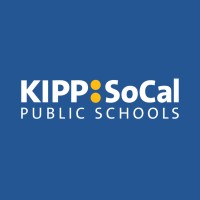
KIPP SoCal Public Schools Company CyberSecurity Posture
kippsocal.orgKIPP SoCal Public Schools is a nonprofit organization that operates 24 tuition-free, open-enrollment charter public schools, within 20 Local Education Agencies, educating more than 10,000 students and supporting 6,800 alumni to and through college. Together with families and communities, we create joyful, academically excellent schools that prepare students with the skills and confidence to pursue the paths they choose—college, career and beyond—so they can lead fulfilling lives and create a more just world. We believe the purpose of education is liberation, in cultivating a place and space where diverse identities are affirmed, voices are heard, and our students can envision what a just world is and feels like. We believe in a world where every child can grow up free to create the future they want for themselves and their community. Our whole-child approach to learning not only focuses on rigorous academics, but also character development, enrichment, social-emotional learning, physical and mental health, sense of identity, and the nurturing of one's purpose. Our award winning schools are part of the national KIPP (Knowledge Is Power Program) network, dedicated to meeting the needs of all learners and providing the social, emotional and academic support for success in high school, college, and life.
Company Details
kippsocal
842
9,910
92311
kippsocal.org
0
KIP_1790249
In-progress
Between 700 and 749

 KSPS Global Score (TPRM)
KSPS Global Score (TPRM)XXXX

Description: On June 2, 2020, KIPP SoCal experienced a data security incident. The breach gave unauthorized access to a data file containing certain students’ information. The GitHub page containing the data file had an incorrect privacy setting, allowing our data file to be searchable within the confines of GitHub from October 3, 2019 through June 2, 2020. The page had been accessed seven times by individuals or robots during the time it was exposed. The page contained the data file included student names, addresses, birth dates, race/ethnicity, primary language, and primary disability.
Description: The California Office of the Attorney General disclosed a data breach affecting **KIPP SoCal Public Schools**, occurring between **October 3, 2019, and June 2, 2020**. The incident stemmed from **unauthorized access to a publicly accessible GitHub repository**, which exposed sensitive student information. Compromised data included **names, addresses, birth dates, race/ethnicity, primary language, and primary disability status**. The exact number of impacted individuals remains undetermined, but the breach posed significant privacy risks, particularly for minors and vulnerable groups. The exposure of such personal details increases the likelihood of **identity theft, targeted phishing, or discriminatory profiling**, given the sensitivity of the leaked attributes. The breach highlights critical lapses in **data access controls and third-party platform security**, as the information was inadvertently made public on a widely used code-hosting service. While no ransomware or direct financial fraud was reported, the long-term reputational and trust-related consequences for the educational institution could be severe, especially given its responsibility for safeguarding student data.


No incidents recorded for KIPP SoCal Public Schools in 2025.
No incidents recorded for KIPP SoCal Public Schools in 2025.
No incidents recorded for KIPP SoCal Public Schools in 2025.
KSPS cyber incidents detection timeline including parent company and subsidiaries

KIPP SoCal Public Schools is a nonprofit organization that operates 24 tuition-free, open-enrollment charter public schools, within 20 Local Education Agencies, educating more than 10,000 students and supporting 6,800 alumni to and through college. Together with families and communities, we create joyful, academically excellent schools that prepare students with the skills and confidence to pursue the paths they choose—college, career and beyond—so they can lead fulfilling lives and create a more just world. We believe the purpose of education is liberation, in cultivating a place and space where diverse identities are affirmed, voices are heard, and our students can envision what a just world is and feels like. We believe in a world where every child can grow up free to create the future they want for themselves and their community. Our whole-child approach to learning not only focuses on rigorous academics, but also character development, enrichment, social-emotional learning, physical and mental health, sense of identity, and the nurturing of one's purpose. Our award winning schools are part of the national KIPP (Knowledge Is Power Program) network, dedicated to meeting the needs of all learners and providing the social, emotional and academic support for success in high school, college, and life.

The Beaconhouse School System has risen from its modest beginnings in 1975 as Les Anges Montessori Academy to become a major force in the education world. With an ever-expanding base, already established in Malaysia, the Philippines, Pakistan, the UAE, Oman, Belgium and Thailand, Beaconhouse is one
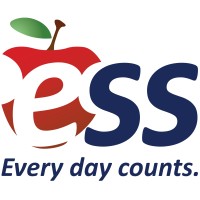
As leaders in the education staffing space since 2000, ESS specializes in placing qualified staff in daily, long-term, and permanent K-12 school district positions, including substitute teachers, paraprofessionals, and other school support staff. Over the last 24 years, we have innovated education s

At the NSW Department of Education, our goal is to be Australia's best education system and one of the finest in the world. We prepare young people for rewarding lives as engaged citizens in a complex and dynamic society. With nearly 100,000 employees working in schools and offices throughout the s
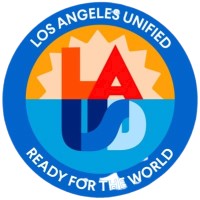
Second largest school district in the nation, LAUSD enrolls nearly 575,000 students in kindergarten through 12th grade, at over 900 schools, and 187 public charter schools. The boundaries spread over 710 square miles and include the mega-city of Los Angeles as well as all or parts of 31 smaller muni

— 30th largest school district in the U.S. — 96,000+ students — 17,400+ full- and part-time employees, including 6,800+ certified teachers Vision All JCPS students graduate prepared, empowered, and inspired to reach their full potential and contribute as thoughtful, responsible citizens of our div

Chicago Public Schools is looking for teachers, leaders, and non-instructional staff to transform the face of urban education. We are a team of passionate, committed, and talented professionals who believe that every CPS student will graduate prepared for success in college, career, and life. Come j
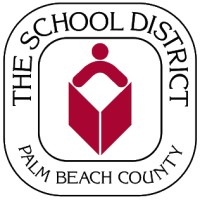
The School District of Palm Beach County is the tenth-largest school district in the nation and the fifth-largest in the state of Florida with 180 schools, serving more than 170,000 students. As the largest employer in Palm Beach County, the school district has more than 23,000 employees, including
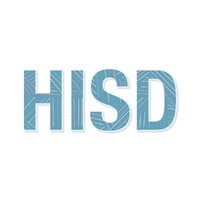
The Houston Independent School District is the largest public school system in Texas and the eighth largest in the United States. Its schools are dedicated to giving every student the best possible education through an intensive core curriculum and specialized, challenging instructional and career p

The Executive Education Department at the UW Foster School of Business develops strategic leaders. We offer comprehensive programs such as our nine-month Executive Development Program as well as focused seminars on essential business topics like leadership, finance and accounting, and negotiating.
.png)
KIPP SoCal Public Schools, which operates 23 charter schools, will close three campuses, a setback for an organization that had grown steadily and is...

Explore insights on cybersecurity incidents, risk posture, and Rankiteo's assessments.
The official website of KIPP SoCal Public Schools is http://www.kippsocal.org.
According to Rankiteo, KIPP SoCal Public Schools’s AI-generated cybersecurity score is 726, reflecting their Moderate security posture.
According to Rankiteo, KIPP SoCal Public Schools currently holds 0 security badges, indicating that no recognized compliance certifications are currently verified for the organization.
According to Rankiteo, KIPP SoCal Public Schools is not certified under SOC 2 Type 1.
According to Rankiteo, KIPP SoCal Public Schools does not hold a SOC 2 Type 2 certification.
According to Rankiteo, KIPP SoCal Public Schools is not listed as GDPR compliant.
According to Rankiteo, KIPP SoCal Public Schools does not currently maintain PCI DSS compliance.
According to Rankiteo, KIPP SoCal Public Schools is not compliant with HIPAA regulations.
According to Rankiteo,KIPP SoCal Public Schools is not certified under ISO 27001, indicating the absence of a formally recognized information security management framework.
KIPP SoCal Public Schools operates primarily in the Education Administration Programs industry.
KIPP SoCal Public Schools employs approximately 842 people worldwide.
KIPP SoCal Public Schools presently has no subsidiaries across any sectors.
KIPP SoCal Public Schools’s official LinkedIn profile has approximately 9,910 followers.
KIPP SoCal Public Schools is classified under the NAICS code 92311, which corresponds to Administration of Education Programs.
No, KIPP SoCal Public Schools does not have a profile on Crunchbase.
Yes, KIPP SoCal Public Schools maintains an official LinkedIn profile, which is actively utilized for branding and talent engagement, which can be accessed here: https://www.linkedin.com/company/kippsocal.
As of November 27, 2025, Rankiteo reports that KIPP SoCal Public Schools has experienced 2 cybersecurity incidents.
KIPP SoCal Public Schools has an estimated 14,169 peer or competitor companies worldwide.
Incident Types: The types of cybersecurity incidents that have occurred include Breach.
Detection and Response: The company detects and responds to cybersecurity incidents through an communication strategy with public disclosure via california ag office..
Title: KIPP SoCal Data Security Incident
Description: On June 2, 2020, KIPP SoCal experienced a data security incident. The breach gave unauthorized access to a data file containing certain students’ information. The GitHub page containing the data file had an incorrect privacy setting, allowing our data file to be searchable within the confines of GitHub from October 3, 2019 through June 2, 2020. The page had been accessed seven times by individuals or robots during the time it was exposed. The page contained the data file included student names, addresses, birth dates, race/ethnicity, primary language, and primary disability.
Date Detected: 2020-06-02
Type: Data Breach
Attack Vector: Incorrect Privacy Setting
Vulnerability Exploited: Incorrect Privacy Setting on GitHub
Title: Data Breach at KIPP SoCal Public Schools via Unauthorized GitHub Access
Description: The California Office of the Attorney General reported a data breach involving KIPP SoCal Public Schools on June 12, 2020. The breach occurred between October 3, 2019, and June 2, 2020, due to unauthorized access to student information on a publicly accessible GitHub page, potentially affecting student names, addresses, birth dates, race/ethnicity, primary language, and primary disability.
Date Detected: 2020-06-02
Date Publicly Disclosed: 2020-06-12
Type: Data Breach
Attack Vector: Unauthorized Access (Publicly Accessible GitHub Repository)
Vulnerability Exploited: Improper Access Control (Publicly Exposed Sensitive Data)
Common Attack Types: The most common types of attacks the company has faced is Breach.
Identification of Attack Vectors: The company identifies the attack vectors used in incidents through GitHub.

Data Compromised: Student names, Addresses, Birth dates, Race/ethnicity, Primary language, Primary disability

Data Compromised: Student names, Addresses, Birth dates, Race/ethnicity, Primary language, Primary disability
Systems Affected: GitHub Repository
Brand Reputation Impact: Potential Reputation Damage (Education Sector)
Identity Theft Risk: High (PII Exposed)
Commonly Compromised Data Types: The types of data most commonly compromised in incidents are Student Names, Addresses, Birth Dates, Race/Ethnicity, Primary Language, Primary Disability, , Personally Identifiable Information (Pii), Student Records and .

Entity Name: KIPP SoCal
Entity Type: Educational Institution
Industry: Education

Entity Name: KIPP SoCal Public Schools
Entity Type: Non-Profit Educational Organization
Industry: Education (K-12 Public Charter Schools)
Location: Southern California, USA
Customers Affected: Unknown (Students)

Communication Strategy: Public Disclosure via California AG Office

Type of Data Compromised: Student names, Addresses, Birth dates, Race/ethnicity, Primary language, Primary disability
Sensitivity of Data: High

Type of Data Compromised: Personally identifiable information (pii), Student records
Number of Records Exposed: Unknown
Sensitivity of Data: High (Includes PII of Minors)
Data Exfiltration: Yes (Unauthorized Access)
Personally Identifiable Information: NamesAddressesBirth DatesRace/EthnicityPrimary LanguageDisability Status

Regulations Violated: Potential FERPA (Family Educational Rights and Privacy Act) Violation, California Consumer Privacy Act (CCPA) - If Applicable,
Regulatory Notifications: Reported to California Office of the Attorney General

Source: California Office of the Attorney General
Date Accessed: 2020-06-12
Additional Resources: Stakeholders can find additional resources on cybersecurity best practices at and Source: California Office of the Attorney GeneralDate Accessed: 2020-06-12.

Investigation Status: Disclosed; Number of Affected Individuals Unknown
Communication of Investigation Status: The company communicates the status of incident investigations to stakeholders through Public Disclosure via California AG Office.

Entry Point: GitHub

Root Causes: Incorrect Privacy Setting on GitHub

Root Causes: Improper Access Controls on Public GitHub Repository
Most Recent Incident Detected: The most recent incident detected was on 2020-06-02.
Most Recent Incident Publicly Disclosed: The most recent incident publicly disclosed was on 2020-06-12.
Most Significant Data Compromised: The most significant data compromised in an incident were Student names, Addresses, Birth dates, Race/ethnicity, Primary language, Primary disability, , Student Names, Addresses, Birth Dates, Race/Ethnicity, Primary Language, Primary Disability and .
Most Significant System Affected: The most significant system affected in an incident was GitHub Repository.
Most Sensitive Data Compromised: The most sensitive data compromised in a breach were Addresses, Student names, Race/Ethnicity, Primary language, Birth dates, Student Names, Primary Disability, Birth Dates, Race/ethnicity, Primary disability and Primary Language.
Number of Records Exposed in Most Significant Breach: The number of records exposed in the most significant breach was 0.
Most Recent Source: The most recent source of information about an incident is California Office of the Attorney General.
Current Status of Most Recent Investigation: The current status of the most recent investigation is Disclosed; Number of Affected Individuals Unknown.
Most Recent Entry Point: The most recent entry point used by an initial access broker was an GitHub.
Most Significant Root Cause: The most significant root cause identified in post-incident analysis was Incorrect Privacy Setting on GitHub, Improper Access Controls on Public GitHub Repository.
.png)
Angular is a development platform for building mobile and desktop web applications using TypeScript/JavaScript and other languages. Prior to versions 19.2.16, 20.3.14, and 21.0.1, there is a XSRF token leakage via protocol-relative URLs in angular HTTP clients. The vulnerability is a Credential Leak by App Logic that leads to the unauthorized disclosure of the Cross-Site Request Forgery (XSRF) token to an attacker-controlled domain. Angular's HttpClient has a built-in XSRF protection mechanism that works by checking if a request URL starts with a protocol (http:// or https://) to determine if it is cross-origin. If the URL starts with protocol-relative URL (//), it is incorrectly treated as a same-origin request, and the XSRF token is automatically added to the X-XSRF-TOKEN header. This issue has been patched in versions 19.2.16, 20.3.14, and 21.0.1. A workaround for this issue involves avoiding using protocol-relative URLs (URLs starting with //) in HttpClient requests. All backend communication URLs should be hardcoded as relative paths (starting with a single /) or fully qualified, trusted absolute URLs.
Forge (also called `node-forge`) is a native implementation of Transport Layer Security in JavaScript. An Uncontrolled Recursion vulnerability in node-forge versions 1.3.1 and below enables remote, unauthenticated attackers to craft deep ASN.1 structures that trigger unbounded recursive parsing. This leads to a Denial-of-Service (DoS) via stack exhaustion when parsing untrusted DER inputs. This issue has been patched in version 1.3.2.
Forge (also called `node-forge`) is a native implementation of Transport Layer Security in JavaScript. An Integer Overflow vulnerability in node-forge versions 1.3.1 and below enables remote, unauthenticated attackers to craft ASN.1 structures containing OIDs with oversized arcs. These arcs may be decoded as smaller, trusted OIDs due to 32-bit bitwise truncation, enabling the bypass of downstream OID-based security decisions. This issue has been patched in version 1.3.2.
Suricata is a network IDS, IPS and NSM engine developed by the OISF (Open Information Security Foundation) and the Suricata community. Prior to versions 7.0.13 and 8.0.2, working with large buffers in Lua scripts can lead to a stack overflow. Users of Lua rules and output scripts may be affected when working with large buffers. This includes a rule passing a large buffer to a Lua script. This issue has been patched in versions 7.0.13 and 8.0.2. A workaround for this issue involves disabling Lua rules and output scripts, or making sure limits, such as stream.depth.reassembly and HTTP response body limits (response-body-limit), are set to less than half the stack size.
Suricata is a network IDS, IPS and NSM engine developed by the OISF (Open Information Security Foundation) and the Suricata community. In versions from 8.0.0 to before 8.0.2, a NULL dereference can occur when the entropy keyword is used in conjunction with base64_data. This issue has been patched in version 8.0.2. A workaround involves disabling rules that use entropy in conjunction with base64_data.

Get company history
















Every week, Rankiteo analyzes billions of signals to give organizations a sharper, faster view of emerging risks. With deeper, more actionable intelligence at their fingertips, security teams can outpace threat actors, respond instantly to Zero-Day attacks, and dramatically shrink their risk exposure window.
Identify exposed access points, detect misconfigured SSL certificates, and uncover vulnerabilities across the network infrastructure.
Gain visibility into the software components used within an organization to detect vulnerabilities, manage risk, and ensure supply chain security.
Monitor and manage all IT assets and their configurations to ensure accurate, real-time visibility across the company's technology environment.
Leverage real-time insights on active threats, malware campaigns, and emerging vulnerabilities to proactively defend against evolving cyberattacks.




